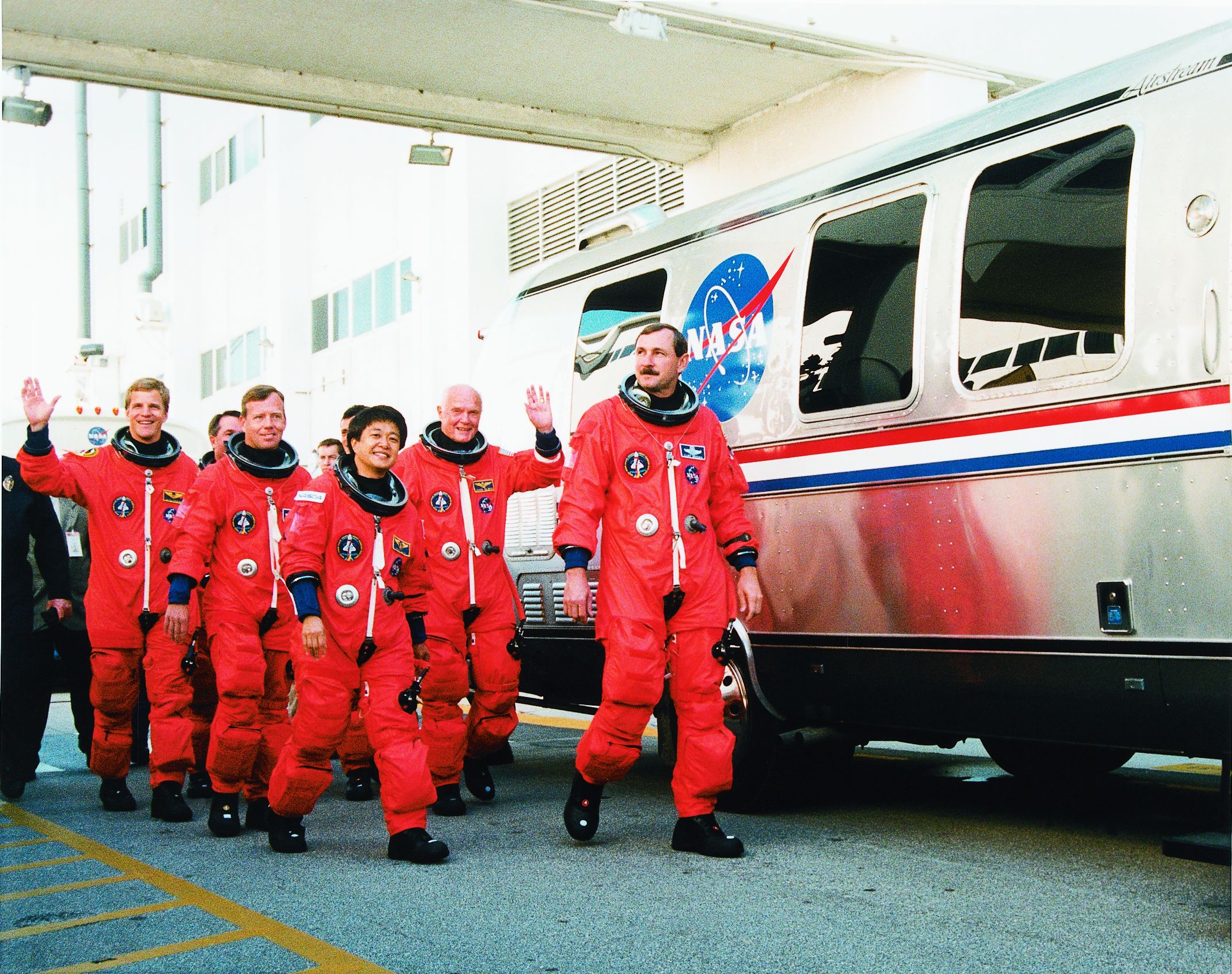Airstream’s new Astrovan II is ready to move the first Boeing commercial crew astronauts
NASA and its commercial astronaut program partners are laser-focused on getting crew into space. But to get to space you first have to get to the rocket, and that's where the Airstream Astrovan II comes in. This vehicle, which is the sequel to the original Astrovan that brought America's astronauts to the launch pad in the days of the Shuttle Program, features modern updates, and is heading straight from being on display at the International Astronautical Congress in Washington to Cape Canaveral to get ready for Boeing's first CST-100 Starliner crew launch next year.
I got a chance to take a look at the Astrovan II in person, but the Airstream staff on site had cordoned off the door to the van. When I asked if I could go in, they explained it was off limits to attendees - for good reason, as this is literally the van that will be used by NASA's commercial crew astronauts during the first launches next year.
The original Astrovan had that signature Airstream "silver bullet" look, as you can see in the photo below. The updated version looks more like your standard commercial shuttle van - but what it lacks in exterior styling, it makes up for in interior creature comforts.
The outside of the Astrovan II has a full-wrap, which shows off Boeing's CST-100 Starline capsule, the spacecraft that Boeing is developing for NASA as part of its commercial crew program (along with second supplier SpaceX, which is simultaneously readying its Crew Dragon capsule for service).
[gallery ids="1903180,1903175,1903174,1903176,1903177,1903178,1903179"]
The Astrovan II holds up to eight passengers (compete with flight suits) and is a custom version of the Airstream Atlas Touring Coach that was hand-built in Jackson Center, Ohio. As you can see, they opted for a minimalist, sci-fi stainless steel look on the inside, with large, comfy-looking chairs that should provide a smooth ride before the considerably rockier one the crew will experience strapped to a massive, powerful rocket en route to the International Space Station.
